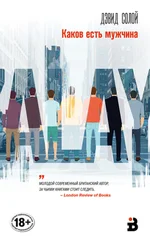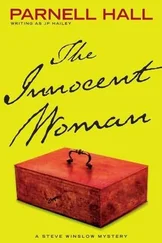From the station, I went straight to the office. It was late – a vacuum cleaner was whining somewhere – and I had to tell Mikhalkov what had happened. I was not looking forward to this.
However, he seemed no more than vaguely interested in what I had to say, which surprised me. ‘Why didn’t he sign it?’ he said. ‘I don’t know.’ He looked at his watch. ‘It’s almost ten,’ he said. ‘I shouldn’t still be here.’ He told Sherepin to phone for his car, and then, just as I was leaving, said, ‘Do you want a lift, Aleksandr Andreyevich?’ It was the first time he had ever offered me a lift. ‘If you want one,’ he said, pulling on his overcoat, ‘meet me at the front entrance in five minutes.’ It was obvious that he wanted to speak to me in private, so I waited for him in the lobby and when he arrived we went out into the rain. I held the umbrella and opened the door of the Packard for him and then hesitated, not knowing where to sit myself. Perhaps I was expected to sit in the front with the driver. Mikhalkov immediately moved over, however. ‘There’s been a slight change of plan,’ he said. ‘I’m going to see Veklishev at his flat.’ General Veklishev was the head of the oblast MGB, and for an uneasy moment I thought he meant for me to join him. Then he said, ‘Pyotr will drop me there, then take you on. Where do you live?’
I told him.
‘Did you get that, Pyotr?’
Pyotr nodded.
‘Yes,’ Mikhalkov said, with a sigh. ‘Veklishev wants to know what’s going on. With Yudin. He’s taking a personal interest in this one. And you know what he’s like. When he gets hold of something.’ Needless to say, I did not know what he was like. I had never spoken more than a few words to him.
‘I’m sorry about this problem,’ I said. ‘With Lozovsky.’
Mikhalkov yawned. ‘It’s not your fault. Lozovsky will have to be moved. We need someone who’ll sign the form. Who’s his deputy?’
‘A man called Dyomkin.’
‘Do you know him?’
‘I’ve met him.’
‘Will he sign it?’
‘Yes, probably.’
‘Okay. It will have to be done through the oblispolkom, of course. We’ll have to speak to them about it. That’s our next move. The man to speak to is Gasselblat.’
‘Gasselblat.’
‘Yes. Explain the situation to him. Arrange to meet him – meet him personally, don’t do it over the phone. Make him understand what needs to be done.’
We pulled over in front of a tall building. It stood out in the darkness because of the way that many of its windows were lit, even at that hour, with electric light. ‘Here we are,’ Mikhalkov said. ‘Pyotr will take you on. Wait for me here when you’ve dropped him, Pyotr. I shouldn’t be long.’
Pyotr turned the Packard in the wide road. ‘How are you, Pyotr?’ I shouted over the noise of the engine and the squeaking of the windscreen wiper.
For a moment, he half-turned. ‘How d’you think?’
‘I don’t know.’
He just shook his head, as though it was obvious. ‘Haven’t had my dinner, for one thing,’ he shouted, a minute later.
‘No, me neither.’
‘And Comrade Colonel says he won’t be long. Well … we’ll see about that.’
‘Keeps you waiting, does he?’
‘What do you think?’
I laughed. ‘I wouldn’t know.’
‘Still,’ he said, ‘at least it’s not all night.’
‘No.’
‘Not all night, every night.’
‘No.’
‘I don’t know how I survived that summer,’ he said.
He meant the summer of thirty-seven, when we worked all night, every night. The summer of thirty-seven. So much has been said about it. To understand what happened, we must start two and a half years earlier with the murder of Sergey Mironovich Kirov. Everyone, so they say, knows what they were doing when they heard the news of Kirov’s murder. I had only been with the NKVD for a few months. It was 2 December 1934 – a freezing morning, the windows of the trams thick with ice and luminous in the dark – and I arrived at work as usual. I went into the office and took off my coat and hat. When the door opened a minute later, I expected it to be Ablamov. It was Pervukhin. ‘Good morning, Comrade Colonel,’ I said. ‘There’s a meeting in the mess at eight o’clock,’ he said. ‘And tell Ablamov.’ It was obvious that something serious had happened. Though the mess was full, it was very quiet. Reshetov entered with Pervukhin and some other senior officers. Immediately, there was silence. Reshetov had a short, whispered conversation with Pervukhin. ‘Comrades,’ he said suddenly in a loud voice, ‘there’s been a terrible tragedy. Politburo member Comrade Sergey Mironovich Kirov has been shot and killed, in Leningrad.’
That things had been allowed to reach such a point was said to be the fault of the NKVD. We were ‘lackadaisical’ and ‘unvigilant’. We had failed to follow up obvious leads, and had ignored the testimony of informers. Important suspects had been freed without proper interrogation. ‘Stronger leadership’ was said to be needed. We were perman entlyunder pressure from politicians and the press. In July thirty-six, the directors of several failing enterprises – the Urals Copper Mining Trust and a few others – were arrested. Then in September, Reshetov suddenly went. His place as head of the oblast NKVD was taken by Dmitriev. There was in fact a huge turnover of personnel at all levels, unfamiliar faces everywhere, and a number of new investigations were launched. A few months later two prominent members of the obkom, Fuks and Golovin, were arrested for fraud and false accounting. A middle manager – I’ve forgotten his name – testified against them. Golovin was second secretary of the obkom, and when he was arrested Kabakov wrote an article in the ‘Urals Worker’ in what was obviously an attempt to distance himself from the spreading scandal. It didn’t work. Throughout the spring, more arrests were made, until, in the high summer of thirty-seven, Andrei Andreyevich Andreyev arrived in Sverdlovsk. He stayed for a week and while he was here, virtually the entire obkom – including Kabakov himself – was thrown out in a series of vociferous public meetings. For as long as he had been first secretary, Kabakov had perpetrated fraud and embezzlement on a massive scale. Worse, he had unjustly expelled thousands of honest party members, and handed party membership to many of his own supporters. Many of these people were not even Communists. They were swept out en masse while Andreyev was here.
All summer the purge went on. Something very strange was happening under the cloudless sky. There was a stunned, surreal atmosphere in the emptying offices. Many positions in the state, party and security services were suddenly vacant.
One day of that summer has particularly stuck in my mind. In the morning I was at work, opening letters to the former head of the oblast NKVD, Dmitriev. Most of these letters were from members of the public with information to pass on. One of them, however, was from the wife of an officer who had been arrested himself – he had known what Kabakov was doing, and had said nothing. Quite possibly he had been in his pay. The officer’s name was Ivan Blyakhman, and his wife’s letter asked if she would be able to take his things from his office. She listed them – his party documents, insurance papers, vacation permit, and so on. Though I had not known Blyakhman personally, I was touched by his wife’s letter, and when I left work, I went to his empty office and found his papers still in a desk drawer. Even his hat was where he had left it. His address was on his party card. A street of wooden houses with the Iset at the end. There was no answer when I knocked on the door, so I spoke to one of the neighbours, who told me that Blyakhman’s wife had been evicted. He said he did not know where she was, so I left her husband’s things with him to pass on if he ever saw her again. Then I went to meet Irina. We had a picnic, and spent the afternoon lying half-asleep in the park. That evening we went to the theatre.
Читать дальше












